The Voices of Women in The Wilderness

We had just finished dinner and my partner and children wanted to go souvenir shopping in downtown Moab, Utah. We had reached well beyond the halfway point of our 2-week odyssey through the desert Southwest by then and wanted a relaxing evening before exploring Zion National Park the next day.
They sauntered off to look at things and I meandered slowly along the main road. I window-shopped and noted all the "outdoor adventure" storefronts and tourist gift shops. It wasn't long before I came upon the Back of Beyond Book Store and decided to go in. I love independent bookshops and always loved what they had to offer over the big box retail bookstores.
I browsed the bookshelves until I came up to a desk in the back of the store. It was a large old wooden desk with frames of old photos on it. There was a man in the photos sitting at the very same desk and I recognized him right away, it was Edward Abbey.
Ed Abbey, also known as Catcus Ed, was a hero of mine from my youth. Certain things conspired to lead me to be a staunch defender of the environment in college when I happened upon his book, "Desert Solitaire: A Season In the Wilderness."
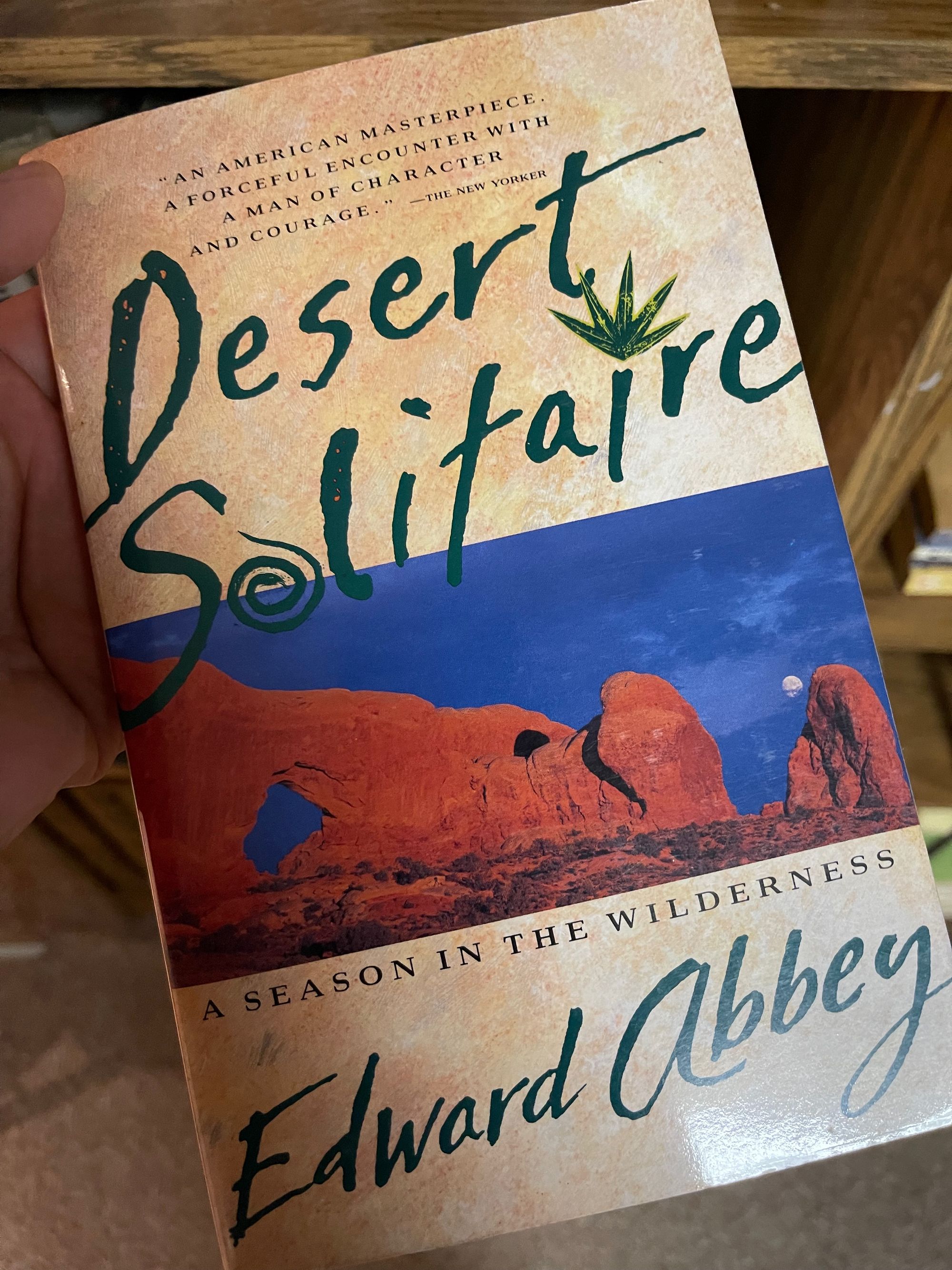
Ed Abbey was a prolific writer on topics of the environment, Nature, and general living on the fringe of society. He appealed to this young engineer and I devoured his book with a hunger I never knew I had. It was through his words that I resonated with being a "rugged individualist", I wanted to be a man like him.
Decades later I've realized that Ed wrote from a very narrow viewpoint and didn't understand the whole picture of Nature and the environment. It made me realize that we can't be rugged individualists. That was a pipe dream that was only achievable by those with privilege.
While he was a wonderful writer and inspiring in so many ways, his words lacked one important and critical piece. It lacked a different viewpoint, it lacked the voices of women from the wilderness. I didn't realize this important bit of information until after my visit to this wonderful bookstore.

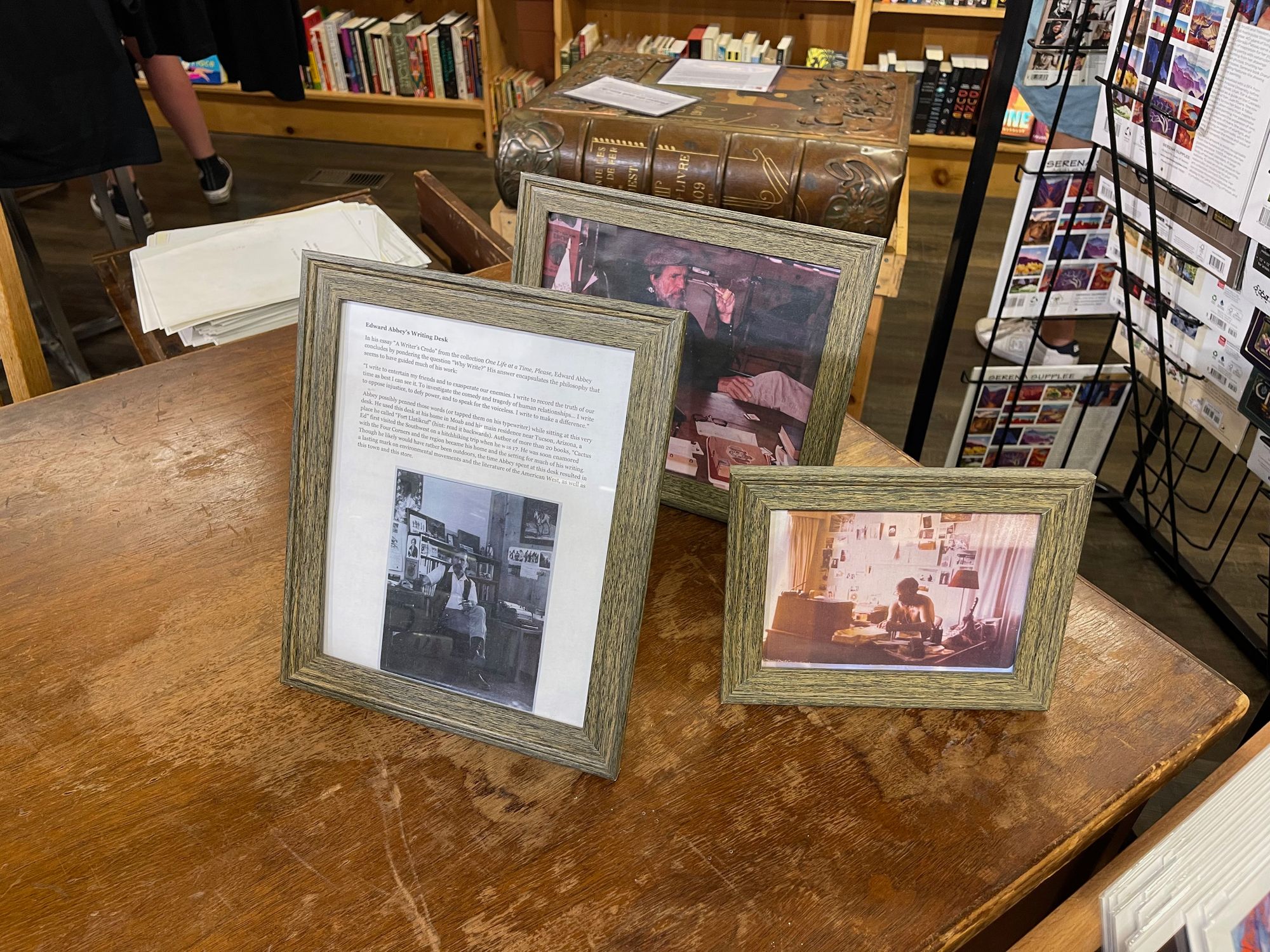
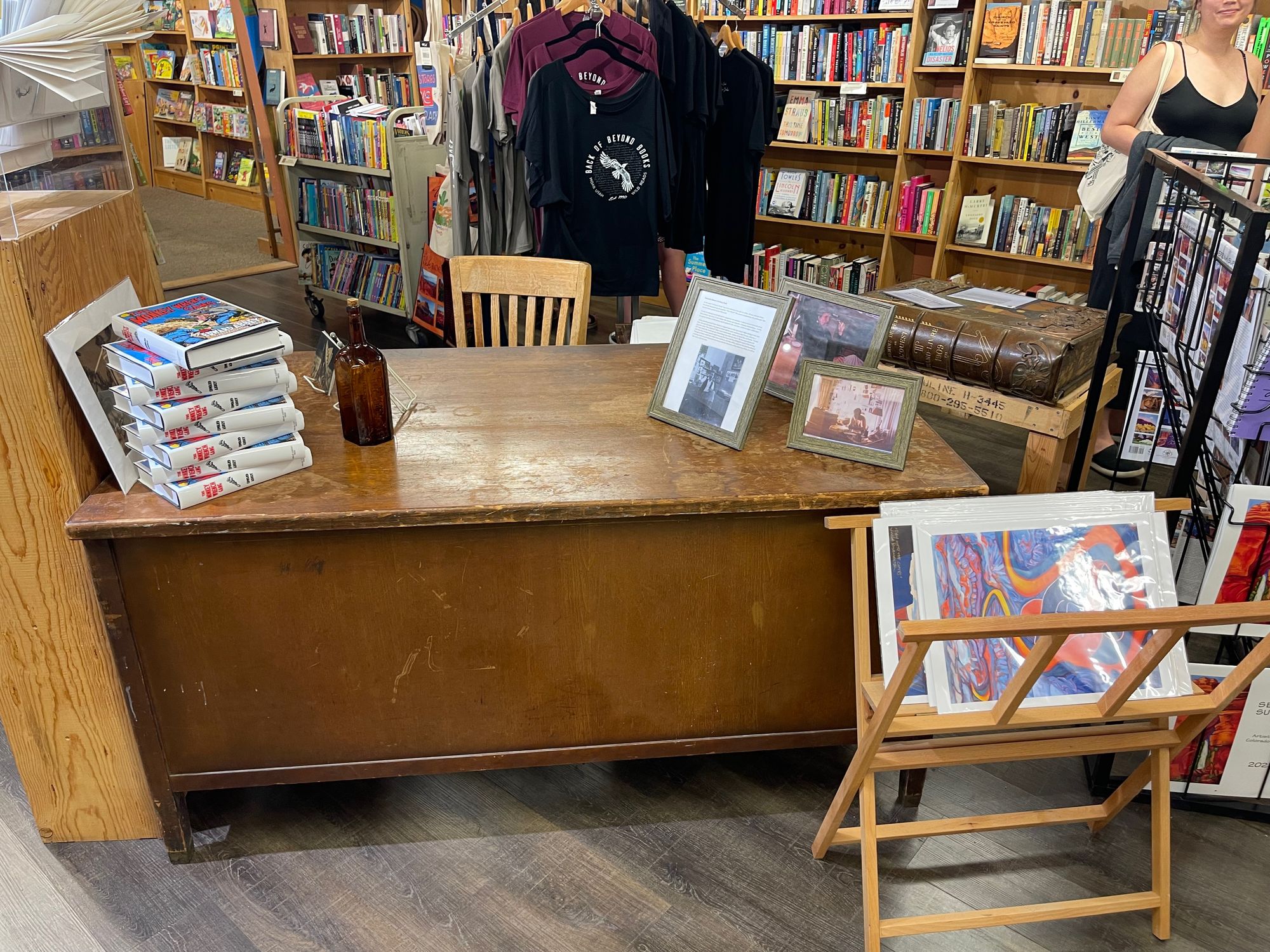
(c) Author - Edward Abbey's desk
I asked the proprietress if she could recommend any local authors. She asked me what I was interested in and I responded that I was a big Ed Abbey fan. She offered some local male authors and expanded on their focus before she carefully said, "We also have some local women authors that offer a different view of wilderness."
She paused to gauge my reaction to her statement, waiting for me to sneer at her suggestions but I didn't. I asked her to give me some details on these authors and listened.
She recommended authors Amy Irvine, Terry Tempest Williams, and Gretel Erlich. Amy Irvine was a former resident of Moab, Terry Tempest Williams lived in Salt Lake City, and Gretel Erlich lived in Wyoming. All three authors had a different voice. They ranged from brash and deeply feministic to gentle and deeply introspective.
I made a note of the authors and the books she recommended before buying Amy Irvine's book, Desert Cabal: A New Season In The Wilderness.
Desert Cabal: A New Season In The Wilderness
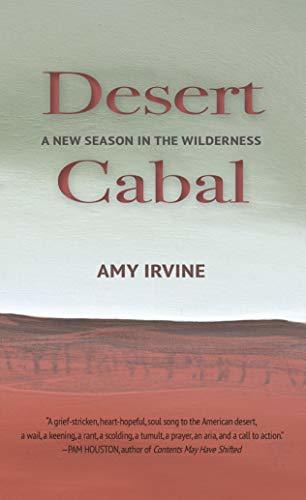
This book is scathing in many ways. It is scathing in the sense that it knocks down all the male privilege that Ed Abbey had by just being a white man in the late 1950s. She points out the hypocrisy in his environmentalism by burning up gas joy riding in cars across the delicate desert landscape.
She does channel the energy that Ed had to protect public lands from being overrun by weekend warriors and thrill seekers. He wanted to enjoy the wilderness by himself, and only himself, leaving his family behind. She points out Abbey's xenophobic attitude to immigration and how he wasn't a good husband, living a trail of ex-wives.
In coming to terms with the paradoxical nature of Ed, she begins to weave a different narrative for protecting the environment and Nature. She talks of raising her daughter in this world and points out how Ed missed the entire point of living in harmony with Nature; it's not independence but integration.
It's not one man or an army of masculine "rugged individualists" fighting for the environment but men and women fighting together and being on the same "team."
“Perhaps this is the way of women: we seek not so much solitude as solidarity, intimacy more than privacy. But it’s the way of wilderness too - in a thriving ecosystem, integration matters far more than independence.” - Amy Irvine, Desert Cabal: A New Season In The Wilderness
This book helped me see Ed Abbey as a flawed man, one that Amy was kind enough to let off the hook here.
Refuge: An Unnatural History of Family and Place
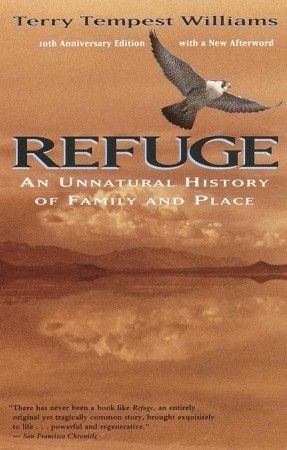
After I finished Amy Irvine's book I ordered this book from my local library. This book hit me really hard because the author weaves a beautiful story of the struggles she has with the death of her grandmother and mother over a period of time.
Terry is an ornithologist, someone who studies birds out by the Great Salt Lake. it was her grandmother who would take her to view the birds that inspired her to become an ornithologist. Every chapter begins with the water elevation of the lake and how it affects the nesting birds and migration. This was particularly poignant because my entire family, especially my son, are amateur ornithologists.
She links the deeds of the Mormon settlers, and how they "tamed" the lake through various stormwater management systems and made the lake "productive." In her written words I began to wonder that if Nature is supposed to be a woman, do we have the right to "tame her?"
For that matter, do we have the right as a society, culture, and men to tame any woman to fit our narrative and view? The answer is no.
“I pray to the birds. I pray to the birds because I believe they will carry the messages of my heart upward. I pray to them because I believe in their existence, the way their songs begin and end each day—the invocations and benedictions of Earth. I pray to the birds because they remind me of what I love rather than what I fear. And at the end of my prayers, they teach me how to listen.” ― Terry Tempest Williams, Refuge: An Unnatural History of Family and Place
Refuge is a beautiful and poetic book that is gentle and deep. It is one where I realized that we are a product of our mothers giving birth to us. We have been nurtured by a long line of mothers that we've tried to tame for 1000s of years.
The Solace of Open Spaces
Closing out my book recommendations is The Solace of Open Spaces by Gretel Erlich. The book is a collection of essays by Gretel, over time, about her life in Wyoming. She moved to Wyoming after the death of her long-time partner and seeks to understand her place in its hard landscape.
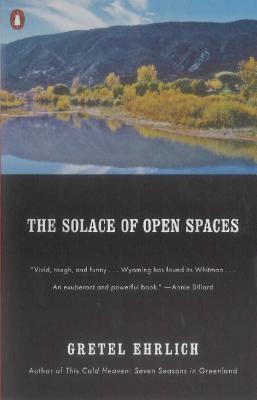
She paints a colorful picture of the work, the people, and her life as a rancher and herder. It's a story of life, death, grieving, and rebirth. She becomes keenly aware of where she is in the web of life with a gentle but discerning meditation. The book is witty and funny at times with an emotional depth that touched me deeply.
“Autumn teaches us that fruition is also death; that ripeness is a form of decay. The willows, having stood for so long near water, begin to rust. Leaves are verbs that conjugate the seasons.” ― Gretel Ehrlich, The Solace of Open Spaces
I was able to draw many parallels to the feelings I felt when I lived in New Mexico. There were a lot of similarities to the landscape and the people I encountered. I met many farmers and ranchers when I lived there and was fascinated by how men and women eke out an existence in this harsh land.
End Notes
I'm a serial book abandoner but these three books stood out to me as something special. Each one of them had their own unique style and signature of the author and I enjoyed the new perspective I gained from listening to the voices of women in the wilderness.


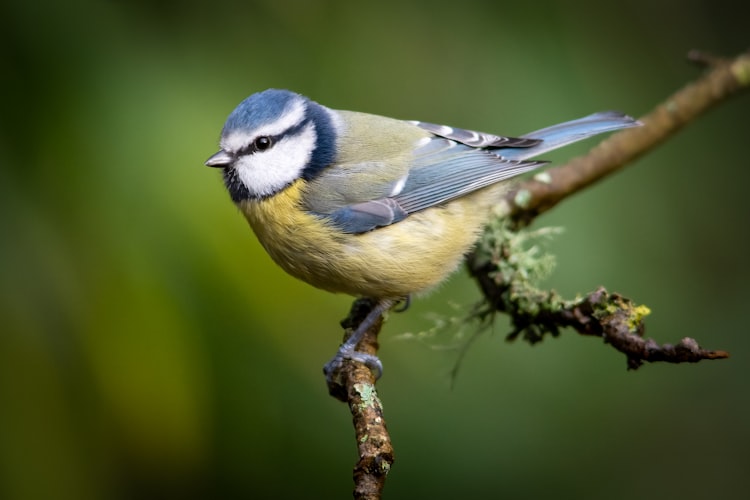

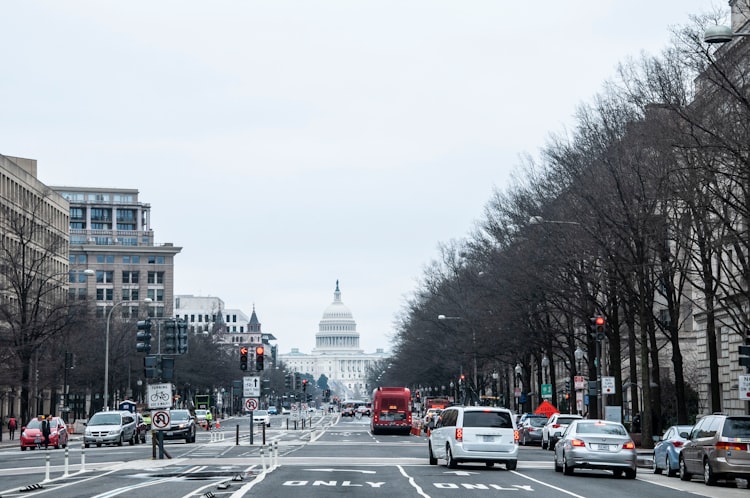
Member discussion